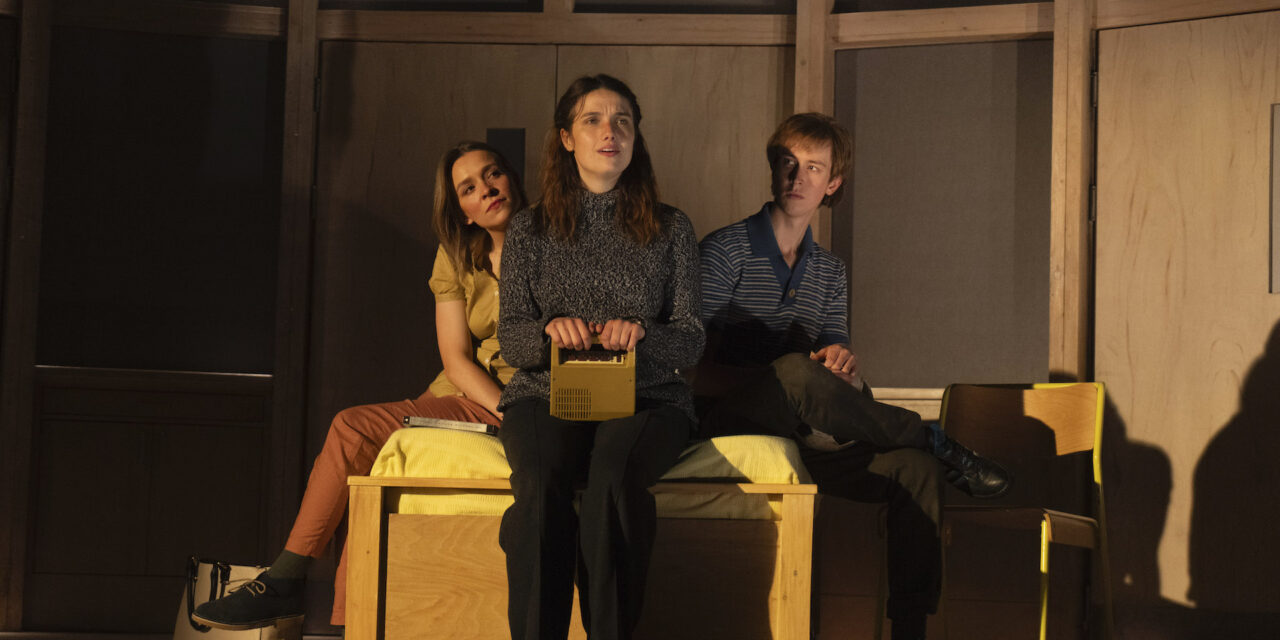
5 – 23 November
In one sense this play can be considered a success: putting a philosophical idea or question on the stage and so making that important transition from telling to showing is no mean feat. The question being asked by Ishiguro in this adaption by Suzanne Heathcote is, ‘What is it to be human?’ But here is the problem for a dramaturg: if the answer to the question is to behave in a human way, to show all the characteristics of a human, then which of those do we bring to the stage? The first act, which I found to be overly long, was little more than a coming-of-age yarn, albeit in a most peculiar setting, the details of which are only revealed in a teasingly piecemeal manner.
The idea driving the play is that ‘people’ are being bred and raised for their organs. It is in one sense the ultimate slavery. Set in an imaginary near past we follow the children, teenagers and young adults – all the product of a particular boarding school for clones – as they make the journey to ‘completion’, that is to when their organ donation leads to their death. Along the way much is made of their artistic output which, it is hinted, marks them out as the human equal of any non-cloned person. Again the interplay of memory with the present, particularly for Kathy, is a significant human trait which runs through the play.
But if it is right (can it be doubted?) that these beings have all the attributes of person hood, the gloomy picture of humanity the play presents is the lack of any sense of autonomy. They have become indoctrinated to accept their fate, one assumes, from birth. The play does not enlighten us as to how this state of affairs came to pass, nor are there any figures railing against the system all of which gives the story a deeply dystopian cast.
We are taken to and fro’ between present and past with ne’re a beat missed; a feat which director, Christopher Haydon, accomplishes with dexterity. The institutional feel of the set by Tom Piper serves as schoolroom, hospital ward and with the help of some sound effects, the seaside.
The three central characters of Ruth (Matilde Bates), Kathy, the story teller (Nell Barlow) and Tommy (Angus Imrie), whose lives we follow are all star-turns performed with depth and sensitivity. Their progress to ‘completion’ however, lacks any ratcheting tension which might have made the piece more of a theatrical rather than simply thought-provoking event.
★★★☆☆ Graham Wyles, 7 November 2024
Photo credit: Hugo Glendinning


